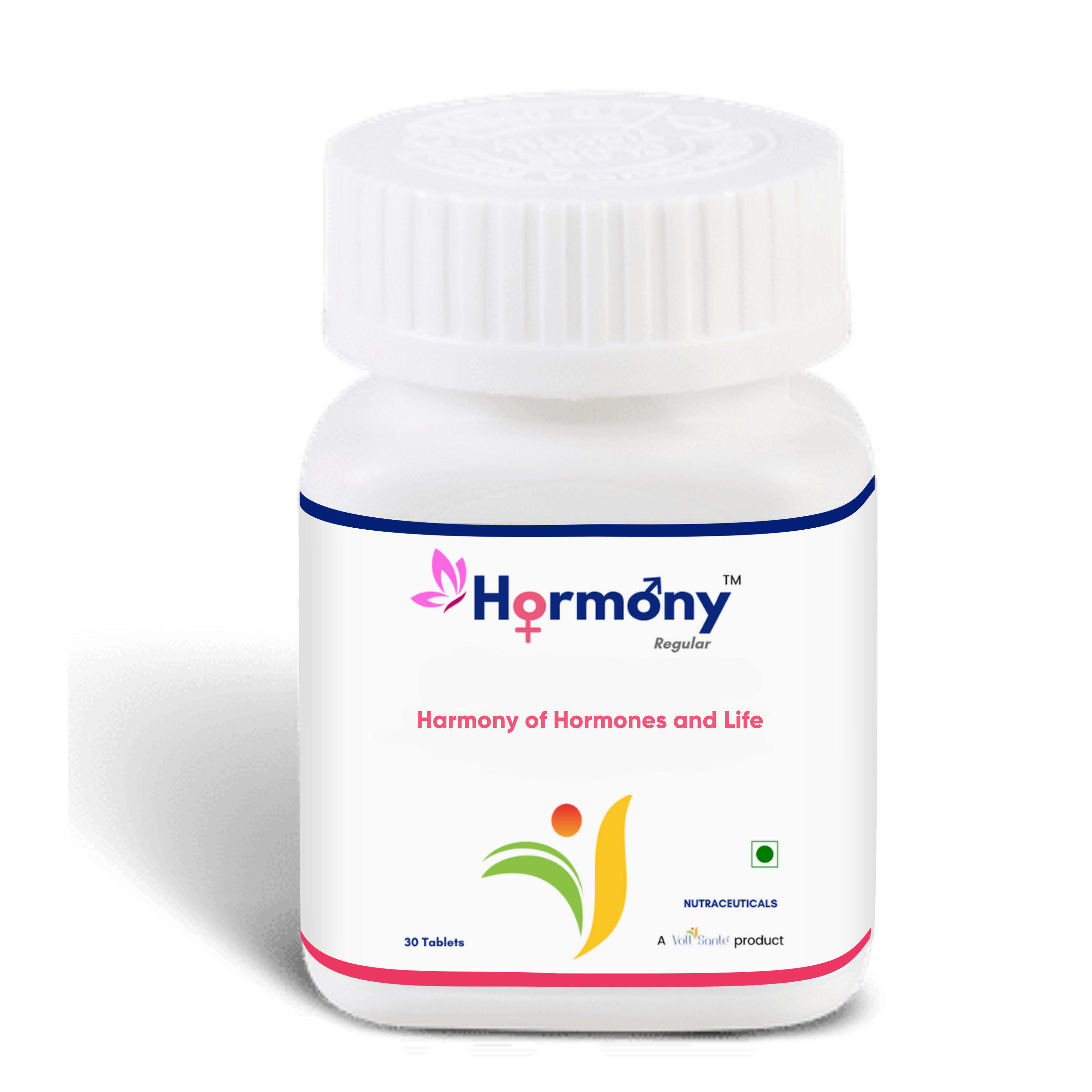Shopping Cart
Cart Is Empty Continue Shopping
BLOGS
Blog date : 2023-08-29
Time : 17:06

Unlocking Hormonal Harmony: Your Ultimate Guide to Managing PCOS/PCOD Naturally
Unlocking Hormonal Harmony: Your Ultimate Guide to Managing PCOS/PCOD Naturally
Introduction
In the realm of women's health, Polycystic Ovary Syndrome (PCOS) and Polycystic Ovary Disease (PCOD) stand as complex endocrine disorders that can disrupt both physical well-being and mental equilibrium. The journey through these conditions is multifaceted, with hormonal imbalances giving rise to an array of symptoms that encompass irregular menstrual cycles, heightened androgen levels, acne, weight gain, and more. However, the narrative doesn't end with these challenges – it's merely the beginning. In this comprehensive guide, we'll delve into the intricacies of managing PCOS/PCOD naturally, fostering hormonal harmony, and nurturing both physical and mental wellness.
Understanding PCOS/PCOD
What Sets PCOS/PCOD Apart?
Polycystic Ovary Syndrome (PCOS) and Polycystic Ovary Disease (PCOD) are often used interchangeably, but they encompass similar yet distinct hormonal disorders. PCOS is characterized by enlarged ovaries with small cysts on their edges, leading to a cascade of hormonal imbalances. On the other hand, PCOD is a broader term that includes multiple cysts on the ovaries, often accompanied by irregular periods and hormonal irregularities.
The Hormonal Maze
Hormonal chaos is at the core of PCOS/PCOD. Insulin resistance, elevated levels of luteinizing hormone (LH) and androgens (such as testosterone), and irregularities in follicle-stimulating hormone (FSH) create a delicate yet intricate web of imbalances. These imbalances not only contribute to physical symptoms but also cast a shadow on mental well-being.
Holistic Strategies for Managing PCOS/PCOD Naturally
1. Embrace Nutrient-Dense Foods
Opt for whole, nutrient-dense foods that support hormonal balance. Incorporate lean proteins, complex carbohydrates, healthy fats, and a rainbow of fruits and vegetables into your diet. Foods rich in omega-3 fatty acids, like fatty fish and flaxseeds, can help reduce inflammation and regulate hormones.
2. Prioritize Physical Activity
Regular exercise is a powerful tool for managing PCOS/PCOD naturally. Engaging in aerobic activities, strength training, and even mind-body practices like yoga can improve insulin sensitivity, aid in weight management, and enhance overall well-being.
3. Mindfulness and Stress Management
Chronic stress can exacerbate hormonal imbalances. Practicing mindfulness, meditation, deep breathing, and other stress-reduction techniques can have a positive impact on hormonal harmony. Aim to create a calm and serene space amidst life's demands.
4. Balancing Blood Sugar Levels
Stabilizing blood sugar levels is pivotal for managing insulin resistance, a common hallmark of PCOS/PCOD. Choose complex carbohydrates over refined ones, incorporate fiber-rich foods, and opt for smaller, frequent meals to prevent drastic blood sugar spikes.
5. Supportive Herbal Allies
Certain herbs have been traditionally used to support hormonal balance. Spearmint tea may help reduce excess androgens, while cinnamon can aid in managing blood sugar levels. However, always consult a healthcare professional before incorporating herbal supplements.
6. Adequate Sleep
Prioritize quality sleep as it plays a vital role in hormonal regulation. Aim for 7-9 hours of restful sleep each night. Create a sleep-conducive environment and establish a relaxing bedtime routine to promote hormonal harmony.
7. Hydration and Detoxification
Staying adequately hydrated supports overall bodily functions, including hormone regulation. Additionally, consider incorporating detoxifying foods like cruciferous vegetables (broccoli, cauliflower) and antioxidant-rich berries into your diet.
8. Holistic Self-Care
Nurturing your mental well-being is equally important in managing PCOS/PCOD. Engage in activities you love, cultivate a support network, and explore relaxation techniques that resonate with you.
9. Consultation with Healthcare Professionals
While natural strategies are beneficial, seeking guidance from healthcare professionals is crucial. A healthcare provider, along with a registered dietitian, can tailor an approach that aligns with your unique needs.
The Mental Health Connection
Addressing Emotional Well-being
The emotional impact of PCOS/PCOD should not be underestimated. Hormonal imbalances, body image concerns, and the challenges of symptom management can contribute to heightened stress, anxiety, and even depression. Prioritizing mental health strategies is essential for holistic well-being.
The Road Ahead: Thriving Naturally
Managing PCOS/PCOD naturally is a journey that requires patience, dedication, and a willingness to embrace lifestyle changes. By fostering hormonal harmony through nutrient-rich foods, physical activity, stress reduction, and holistic self-care, you can take charge of your well-being and pave the way for a thriving life.
Conclusion
Unlocking hormonal harmony while managing PCOS/PCOD naturally requires a multifaceted approach that addresses both the physical and emotional dimensions of these conditions. By embracing a lifestyle rooted in mindful choices, balanced nutrition, physical activity, and self-care, you can embark on a journey of empowerment and well-being. Remember, you are not alone on this path – reach out for support, consult healthcare professionals, and celebrate every step towards hormonal equilibrium.
Latest Blogs
- Unlocking Hormonal Harmony: Your Ultimate Guide to Managing PCOS/PCOD Naturally
- Mind Matters: Effective Mental Health Strategies for Coping With PCOS/PCOD and Thriving
- The Crucial Role of Nutrition in Fertility: Nourishing the Path to Parenthood
- Importance of Nutrition in Fertility: How "Hormony" Can Make a Difference
- Post-Pandemic Fitness: Adapting Your Routine for Changing Times
- Age-Defying Wellness: Unlocking the Secrets of Youthful Radiance
- Tech Detox: Balancing Screen Time for Mental Wellness and Digital Harmony
- Protein's Role in Weight Management: The Science Behind Feeling Full
- From Hashtags to Health: Riding High on the Vegan Calcium Trend
- The Bone Boosting Dream Team: How Calcium, Vitamin D, Magnesium, and Vitamin K2-7 Work Together
- Strong Bones, Green Choices: Why Vegan Calcium Supplements Are a Must-Try





